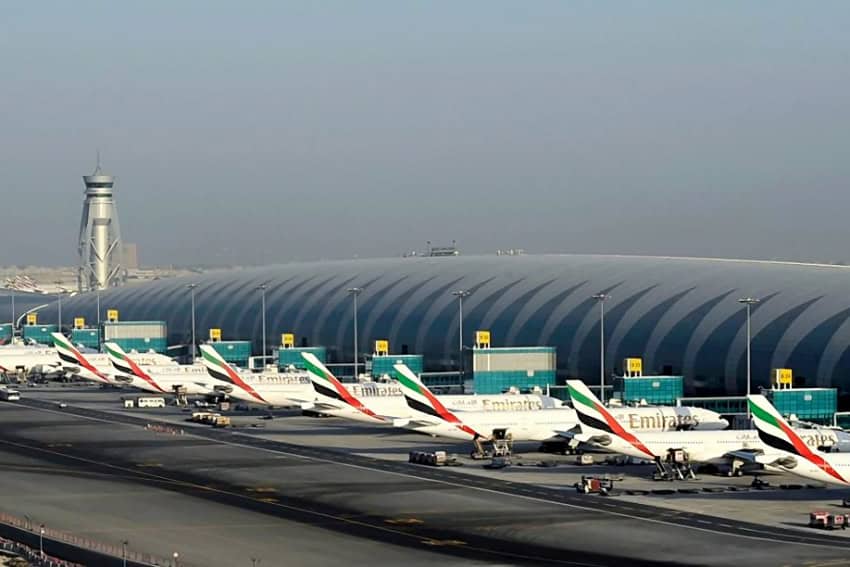DUBAI (APP) – Dubai airport has soared ahead of London s Heathrow, riding a boom in long-haul flights between Asia and the West to become the world s top international travel hub, it said Tuesday.
Traffic at the airport increased 6.1 percent last year to 70.47 million passengers, Dubai Airports said, adding that it expected a further surge in traveller numbers in 2015.
Dubai International is home to Emirates, the Middle East s largest carrier, which along with Abu Dhabi s Etihad and Qatar Airways has seized a significant portion of travel between the West, Asia and Australasia.
“This historic milestone is the culmination of over five decades of double-digit average growth,” Dubai Airports Chairman Sheikh Ahmed bin Saeed al-Maktoum said in a statement.
“The shared goal is to make Dubai a global centre of aviation and we are nearing that goal,” he said.
Dubai Airports CEO Paul Griffiths said Dubai International would boost its annual capacity to 90 million passengers this year with the opening of Concourse D — a new hall for arrivals and departures.
Oil-poor Dubai has spent years trying to diversify its economy with core sectors now including trade, transport and tourism.
Aided by a rapid expansion in capacity, aviation is expected to account for more than a third of the emirate s GDP by 2020.
London Heathrow by contrast has struggled to grow, with a commission still studying proposals to increase capacity there and at Gatwick airport, south of London.
The two are among five airports serving the UK capital that form the busiest hub in the world with around 135 million passengers a year.
Heathrow handled 68.1 million international passengers in 2014, according to airport figures.
The British hub still outclassed Dubai International in overall numbers, handling 73.4 million passengers if travellers on domestic flights are included.
Dubai s increase in passenger numbers comes despite a slight fall in the number of flights taking off in 2014, due to 80-day runway refurbishment project.
Emirates Airline in particular has bought more wide-bodied aircraft, including the world s largest fleet of Airbus A380 superjumbos, helping the average number of passengers per flight at Dubai to grow to more than 200.
Sarfraz Ali
The writer is an Editor of Digital Media for Daily Pakistan. He can be contacted at sarfraz1168@gmail.com.














